Please note that this blog is now out of date. For a full list of Portainer's current features and functionality please go to our Portainer Features page.
Today, we have released Portainer Business 2.7.o. This new release comes with several features and fixes addressing feedback and enhancement requests, including the ability to deploy a manifest from a git repository for Docker and Kubernetes.
We've highlighted the most significant changes below, and at the end of the blog post, you'll find a link to our tips and tricks for upgrading, as well as the release notes.
- Deploy a manifest from a git repository for Docker and Kubernetes
This brings the ability to deploy a docker-compose or YAML Manifest from a git repository when using Stacks deployment on Docker or Advanced Application deployment with Kubernetes. This is specially useful if you use a Git server to store deployment Manifests.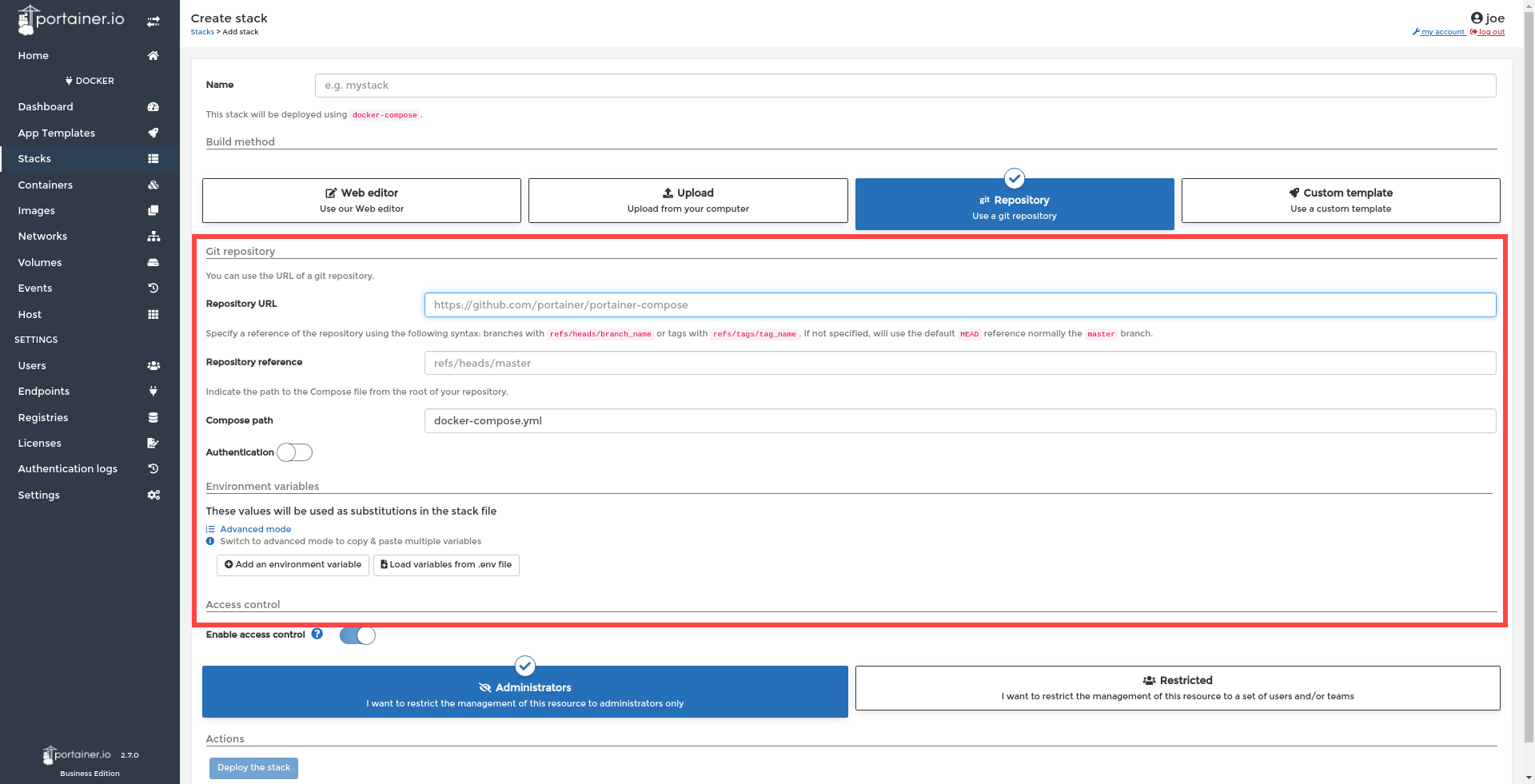
- Group membership mapping from OAuth
Discover how you can easily manage access control in Portainer when you have a large number of users and you're using OAuth. - Summary of the Kubernetes actions
Portainer will now generate a Summary block with all the actions and changes being applied to a Kubernetes endpoint. So before confirming an action on the Kubernetes cluster like for instance deploying an Application or creating a Namespace via the Summary tab you have cleary each step that will be performed by Portainer.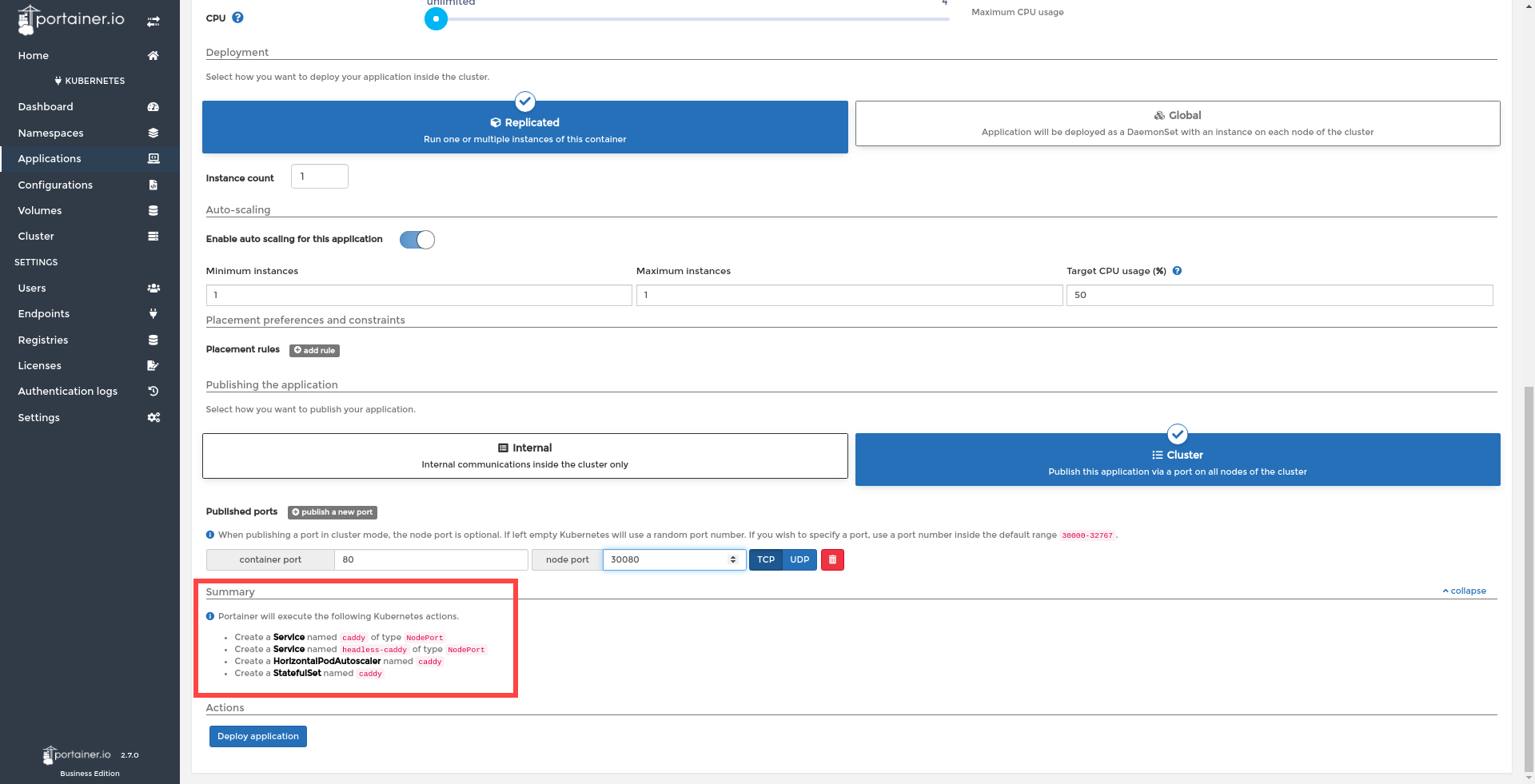
- Advanced deployment available for all users
Previously Advanced Deployment was only available to Endpoint Administrators. Now with this new feature Standard Users also have access the Advanced Deployment option in Portainer when deploying applications: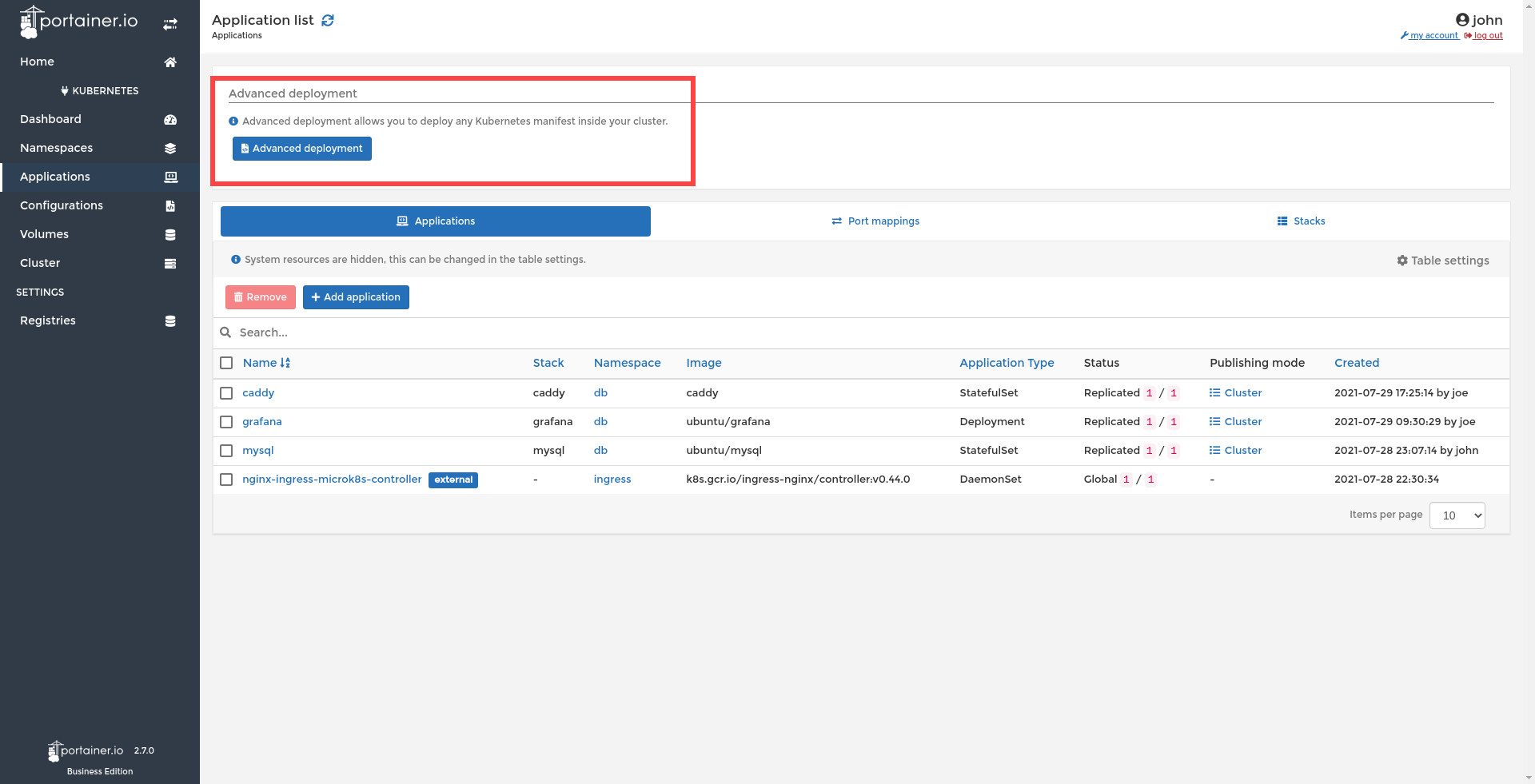
- Real-time container and node performance
You can now monitor in real-time the performance of your Pods and Nodes in your Kubernetes cluster with a graphical representation of hardware resources that these components are using.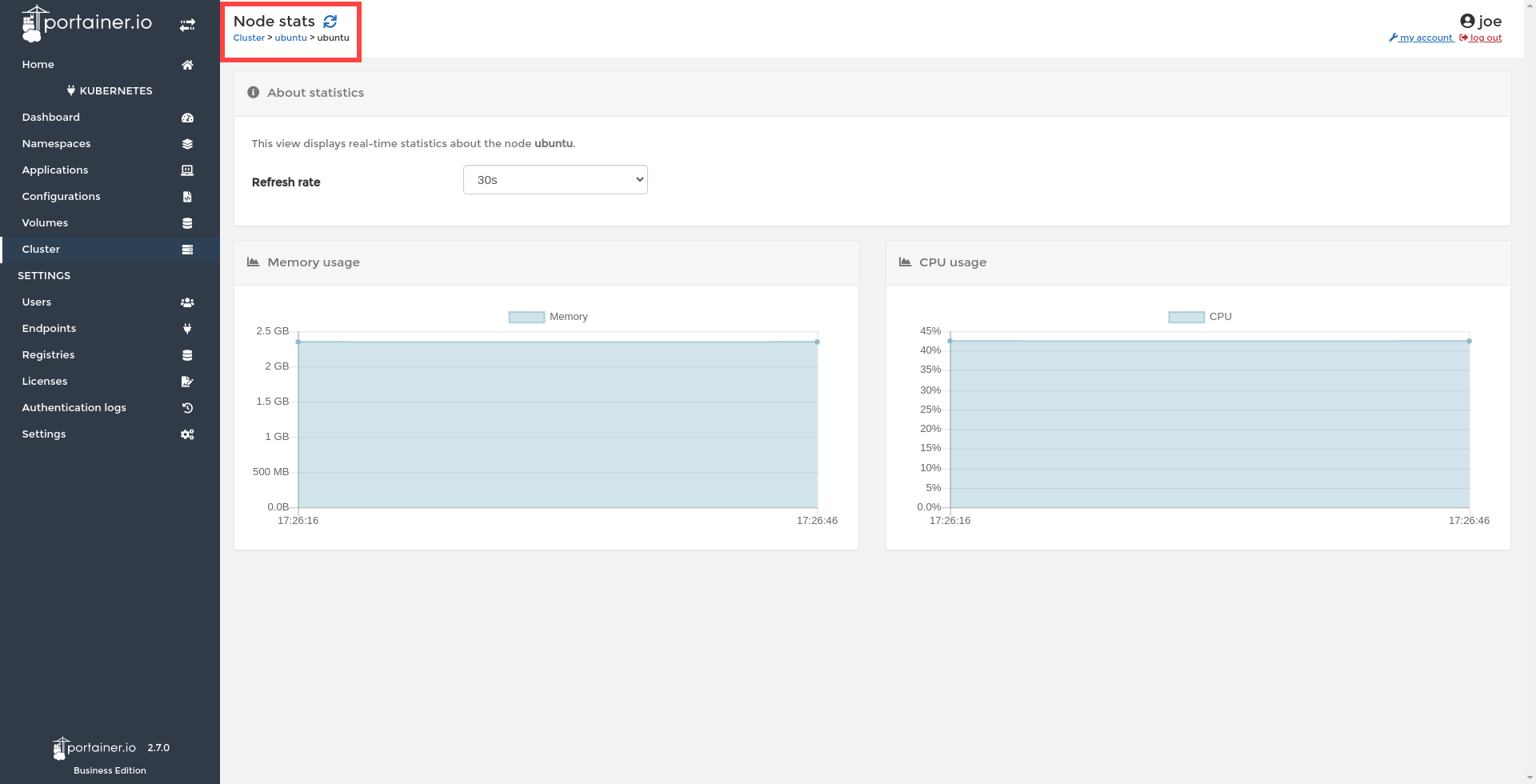
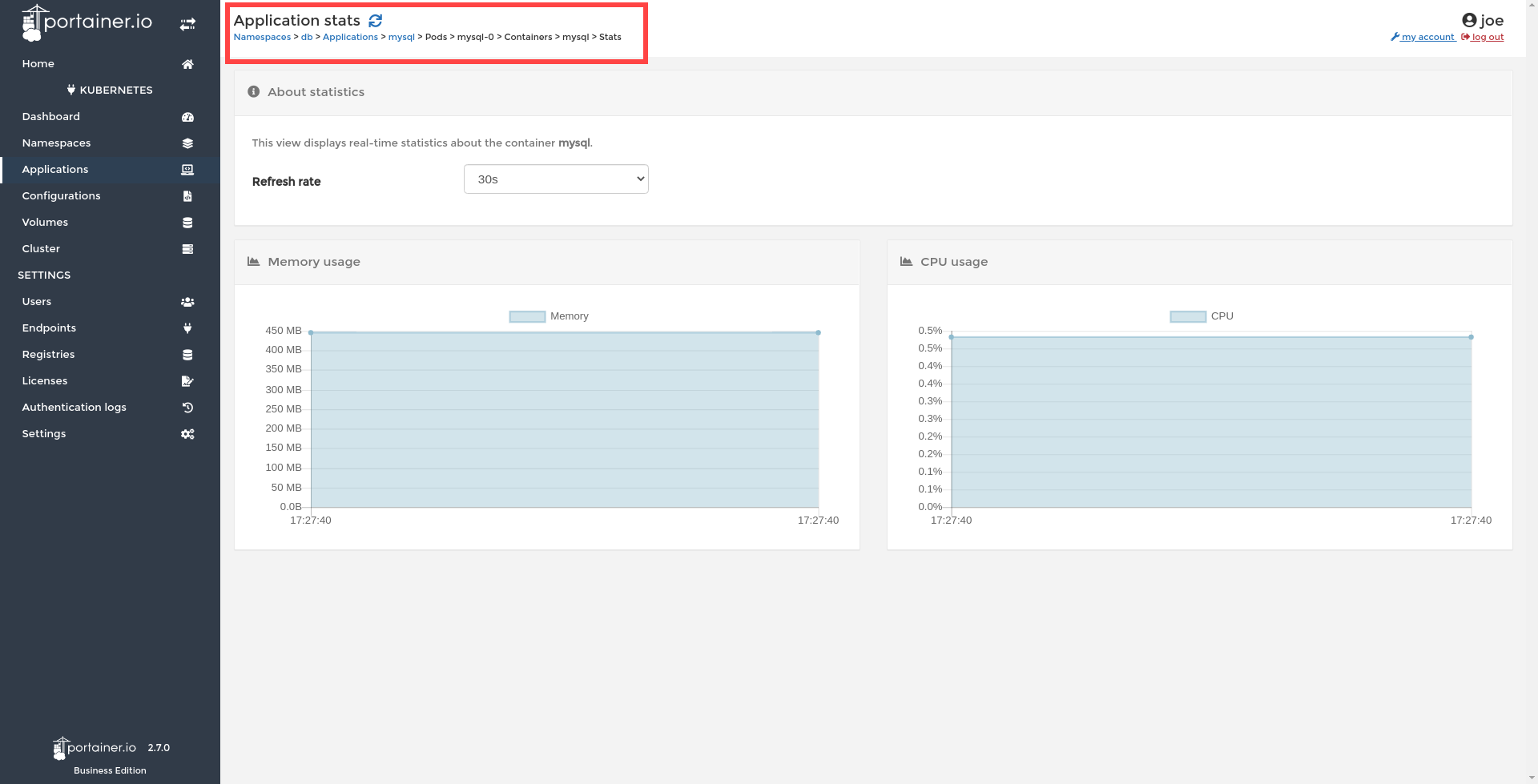
- Rename the “Resource pools” to Namespaces
Previously namespaces were created using the Resource Pool option that could cause some confusion. We decided to change this to the standard Namespace Kubernetes nomenclature for clarity.
- Single Sign-on support for OAuth with the ability to skip the Authentication Prompt.
Portainer 2.7.0 has support for SSO on the OAuth authentication method. You can now configure SSO with your favorite provider (GitHub for example) and seamlessly login into your Portainer instance. With this you don’t have to provide a password with Portainer if your OAuth session is still valid.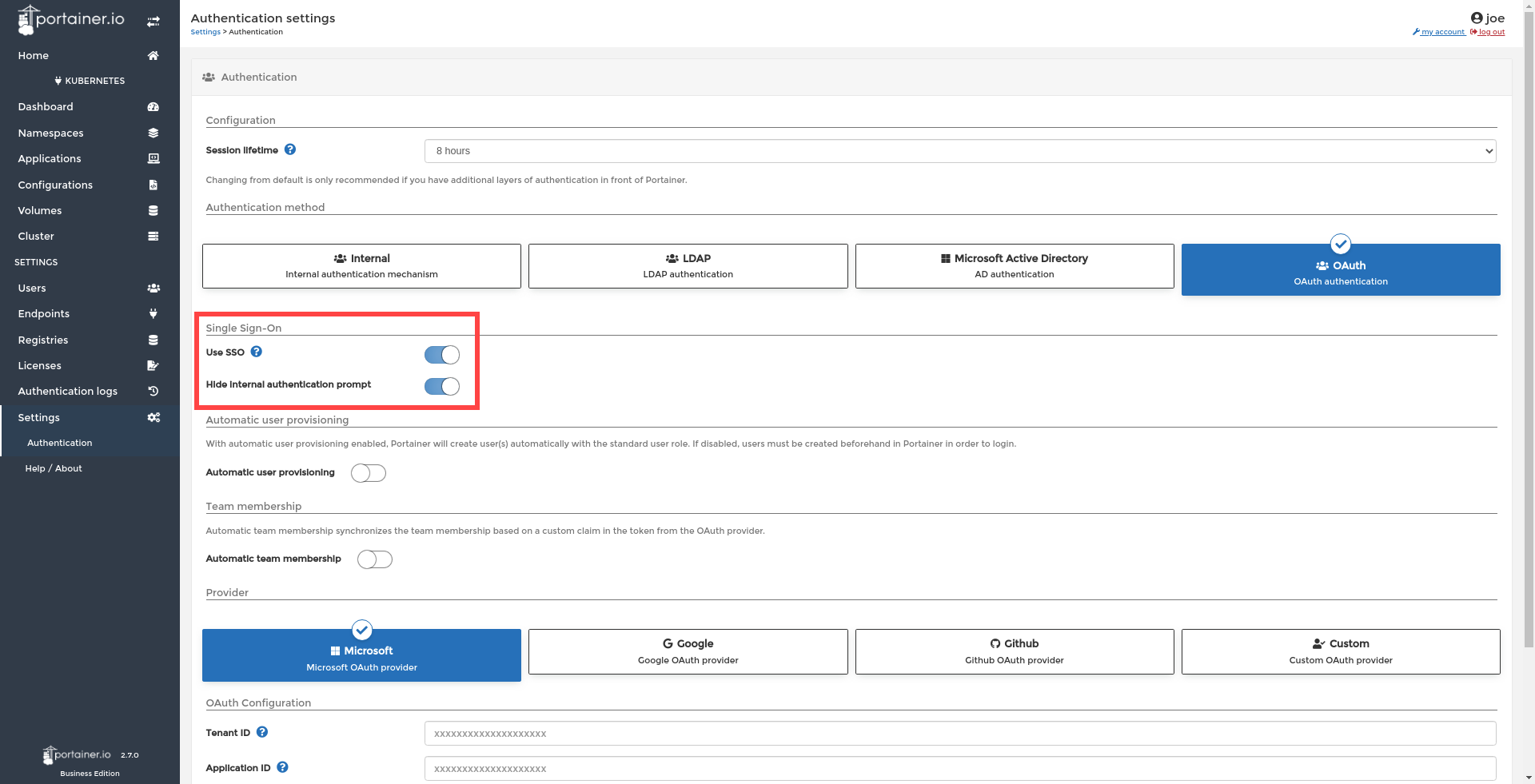
- Proget Registry support
Portainer 2.7.0 now supports adding Inedo Proget Private Registry so you can deploy private images via Portainer easily with this new integration.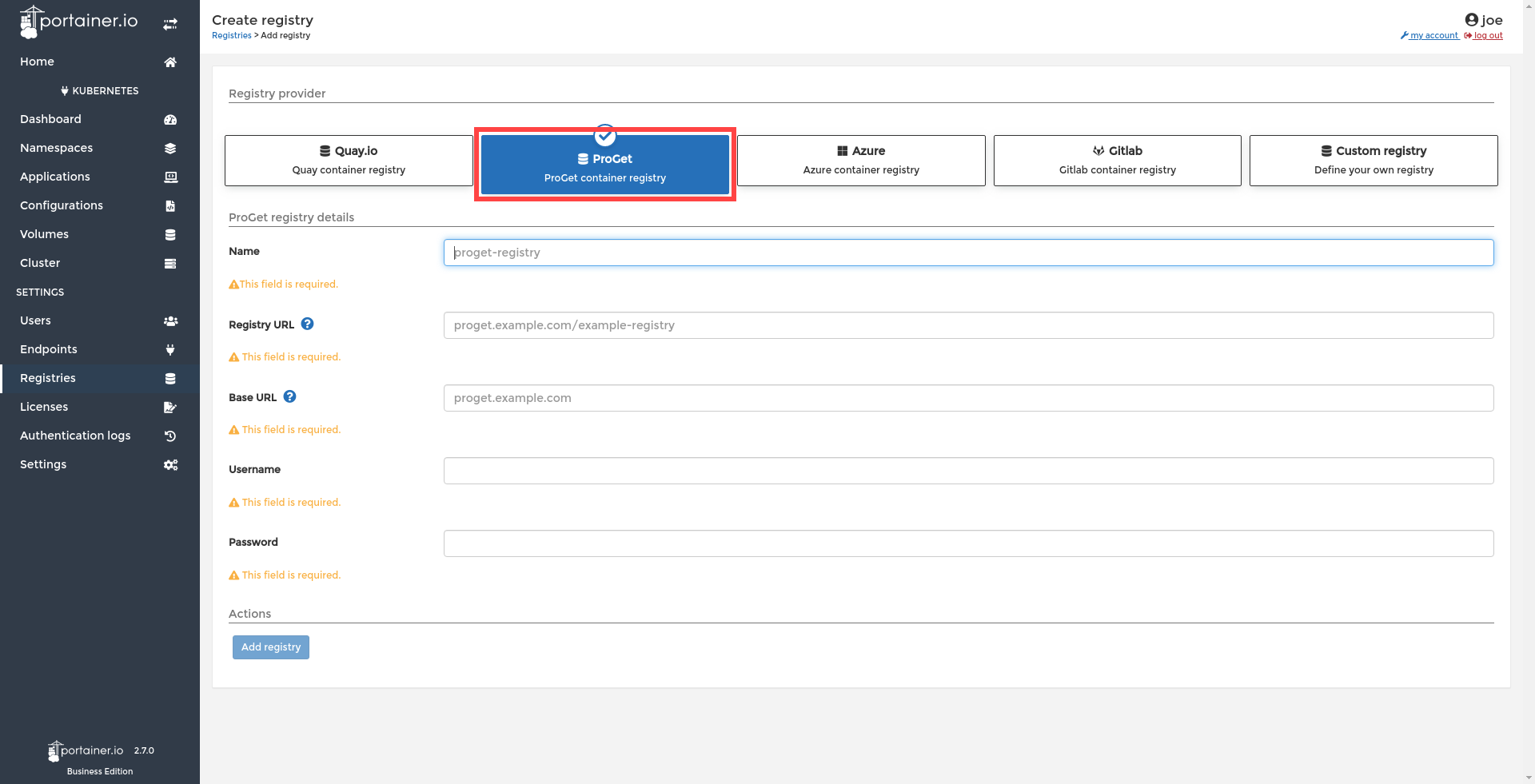
We would like to thank all of our business customers and community members that help us improve Portainer. We are continuously open to suggestions and enhancements.
Tips and tricks for Upgrading
See upgrade instructions for Docker, Docker Swarm and Kubernetes here.
Any questions or comments, don't hesitate to drop me a line. Or join our Slack channel here.
See for yourself, with a demo or free trial
Let us introduce you to a world of fast and easy app deployment, governance, and management in Docker/Swarm and Kubernetes. Join a group demo to see how Portainer Business helps to make Engineering and DevOps teams more accurate and efficient in container management.

COMMENTS